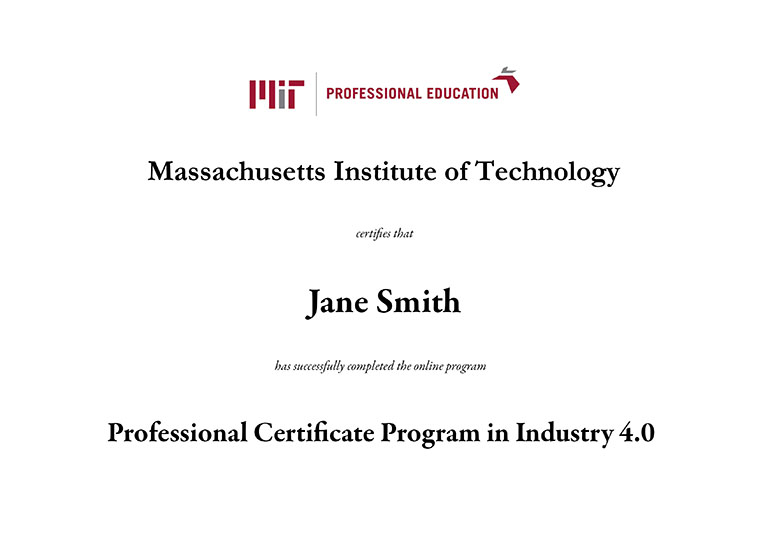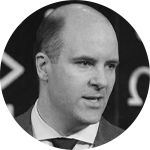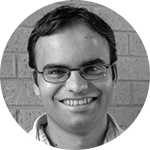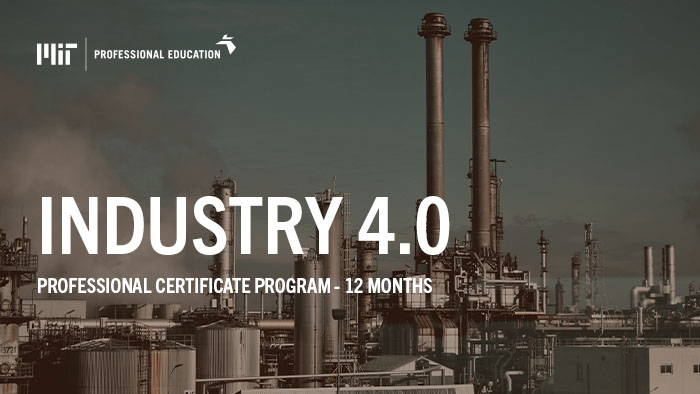The Path to Success in the 4th Industrial Revolution
Organizations operate in an environment that is technologically and competitively evolving more rapidly than ever before. As such, they continue to redesign their product operations, business models, and customer support solutions. Until now, industry has sought profitability in standardization, series production, large volumes, and cost reduction.
Now, organizations must adjust to this disruptive market leveraging technology to drive growth and efficiency. New technologies are a game-changer, as they allow greater product customization breaking fixed structures from factories, making products more modular, and generating profits despite producing fewer products.
10-20%
Organizations that engage in intense management practices and technology deployment can improve asset efficiency by 10-20%.
Source: Deloitte analysis
90%
Additive manufacturing (processes that make three-dimensional products from a digital design) can reduce material costs by up to 90% and energy costs by up to 50%.
Source: World Economic Forum
15-30%
The use of integrated processes in healthcare systems in an economy of scale enables cost reduction by 15-30%.
Source: Strategy& PWC
An online Professional Certificate Program to boost performance through disruption
From leading technologies such as the internet of things (IoT) and artificial intelligence to understanding the fundamentals of smart manufacturing and product platforms, through the Professional Certificate Program in Industry 4.0, we prepare professionals to tackle these challenges head-on and provide them with the knowledge and tools to succeed in the digital age.
The objective? To help them bring to their organizations:
Greater Efficiency
by learning how to optimize product processes
Maximum Impact
by learning about technology management
In this tailored program, participants will be able to learn about the technologies and tools most applicable in today’s industry directly from leaders in the sector who are pioneering change.
The Learning Journey
For twelve months, and in a completely online format, we guide participants through the five courses that will influence and help them carry out their own industrial revolution:
Designing Product Families
Management of Technology
Smart Manufacturing
Industrial Internet of Things
Elective Course
Management of Technology II: Strategy & Portfolio Analysis
Machine Learning: From Data to Decisions
Digital Platforms: Designing Two-Sided Markets from APIs to Feature Roadmaps
Forecasting Technology Innovation: Using Data for Strategic Advantage
Leadership & Innovation
Women in Leadership: Becoming an Agent of Change
The skills you will develop
By studying and passing the five courses that are part of the Professional Certificate in Industry 4.0, you will be able to develop:
1.
Understand the evolution of the industry
from craft manufacturing to mass customization.
2.
Leverage platforms for identifying new market
and product opportunities to generate revenue growth.
3.
Identify major contemporary methods
and tools for product family and platform design.
4.
Explore emerging trends in smart manufacturing
and visualize production data to better understand key variables and underlying phenomena in a manufacturing environment.
5.
Delve deeper into machine innovation and machine vision,
working through different iterations of a fiber extrusion device (FrED), specifically designed to provide program participants examples of how to optimize machines.
6.
Carry out advanced data analysis
using data sets produced on FrED in a manufacturing setting.
7.
Apply the theory behind the IoT+
to construct real applications and improve them using smart technologies.
8.
Learn to quantify technological progress over time
using relevant figures of merit (FOMs), and map one or more technologies to a target product and/or service of their choice and set realistic FOM-based targets.
9.
Develop strategies, cultures, and structures
from a leadership perspective that foster creativity and innovation.
In addition, you will receive a Certificate of Completion
All the participants who successfully complete Industry 4.0 will recieve a Certificate of Completion from MIT Professional Education. Furthermore, the participants who complete the program recieve Continuing Education Units (CEUs)*.
To obtain CEUs, complete the accreditation confirmation, which is available at the end of the course. CEUs are calculated for each course based on the number of learning hours.
* The Continuing Education Unit (CEU) is defined as 10 contact hours of ongoing learning to indicate the amount of time they have devoted to a non-credit/non-degree professional development program.
To understand whether or not these CEUs may be applied toward professional certification, licensing requirements, or other required training or continuing education hours, please consult your training department or licensing authority directly.

This Professional Certificate Program is aimed at
- PLANT MANAGERS
and Product managers.
- PRODUCT LINE STRATEGISTS, PLATFORM ARCHITECTS,
R&D engineers, and systems engineers in industrial and government contexts.
- DESIGN AND MANUFACTURING ENGINEERS
seeking to learn about data and modeling in a manufacturing environment.
- DATA SCIENTISTS
looking to apply their craft to the growing field of smart manufacturing.
- CONSULTANTS
who want to add value around the latest technology transformations in manufacturing.
A CLOSER LOOK AT THE PROFILE
- Professionals who want to obtain a broader strategic vision about how methodologies, technologies and tools can transform their operations.
- Also, those who are interested in understanding how to define modular and scalable product architectures, utilizing standardization, customization, and platform leveraging strategies to maximize cost savings.
Meet the instructors of this program
Listed in alphabetical order

Dr. Anthony´s research revolves around the design of instruments and techniques for measuring and controlling complex physical systems and includes the development of instruments and measurement solutions for manufacturing, medical diagnostics, and imaging diagnostics. In addition to his academic work, he has extensive experience in market-driven technological innovation, product development and entrepreneurship, and marketing at the point where information technology and advanced manufacturing come into contact. As a teacher, his main interests are the modeling of large-scale systems in a variety of areas involving decision making and the development of optimization algorithms and software useful for analyzing and designing these types of systems. He is an expert in market-driven technological innovations, as well as in entrepreneurship.
PROGRAMS: Industrial Internet of Things · Smart Manufacturing

Dr. Cameron teaches the subject of System Architecture for the “System Design and Management”, where he has trained over 500 students. Dr. Cameron´s teaching at Sloan Executive Education has been rated as the highest level of Executive Education program at MIT for several years. In addition, he is the Faculty Director of MIT´s online certificate “Architecture and System Engineering”, which has trained more than 5,300 participants.
PROGRAMS: Designing Product Families

Professor De Weck is a leader in systems engineering research. He focuses on the design of complex man-made systems, such as aircraft, spacecraft, cars, printers and critical infrastructure, and on their evolution. His main focus is on strategic properties that have the potential to maximize life cycle value. Since 2001, his group has developed new methods and quantitative tools that explicitly consider production, flexibility, common features and sustainability, among other characteristics. Professor De Weck’s teaching emphasizes excellence, innovation, and the combination of theory and practice.
PROGRAMS: Designing Product Families

David consults with technology executives on topics related to developing leadership among engineers, researchers, and other technical experts. He has published on organizational culture, ethics, engineering leadership, and developing management and leadership skills. David holds a Ph.D. in Management from the University of Texas at Austin, where he earned his B.A., B.B.A., and M.A. degrees. He lives in Weston, Massachusetts, with his wife and three children.

Dr. Abel Sanchez holds a PhD from the Massachusetts Institute of Technology (MIT) and teaches MIT courses in cyber security, engineering, blockchain and data science. He has been involved in developing educational software for Microsoft and establishing the Accenture Technology Academy. He has produced over 150 educational videos, has 10 years of experience with learning management systems and has made deployments in the Americas, Asia and Europe.
PROGRAMS: Digital Transformation · Cloud & DevOps · Blockchain

He has worked with more than 30 different companies to apply his methods of product line improvement and product development practices. He helped establish and manage the Product Platform group on LinkedIn.
PROGRAMS: Designing Product Families

He is author and coauthor of more than 250 articles in journals and conferences. Professor Williams teaches courses on the basics of programming, modern software development, the architecture of web, cloud and blockchain systems. In addition, he holds a BSc in Physics from Oxford University, an MSc in Physics from UCLA, and a PhD from the University of Swansea.
PROGRAMS: Digital Transformation · Cloud & DevOps · Blockchain

He has served as an editor for Argumentation and Advocacy and received the Douglas W. Ehninger Distinguished Rhetorical Scholar Award in 2000 as well as the Rhetorical and Communication Theory Distinguished Scholar Award in 2006. He was named a National Communication Association (NCA) Distinguished Scholar in 2009 and won NCA’s Charles H. Woolbert Award in 2016 for research that has stood the test of time and stimulated conceptualizations of communication phenomena.

His current research interest is in developing large-scale machine learning algorithms for unstructured data, with particular interest in social data. He has made contributions to the development of “gossip” protocols and “message-passing” algorithms for statistical inference that have been pillars of modern distributed data processing systems.
He cofounded Celect, Inc., which has been part of Nike since 2019. In 2019, he cofounded Ikigai Labs with the mission of building self-driving organizations by empowering data business operators to make data-driven decisions with the ease of spreadsheets.
His work has been covered in popular press including The New York Times, Forbes, and Wired, and he has written several award-winning papers in machine learning, operations research, and computer science. He has also been awarded the 2010 Erlang prize from the INFORMS Applied Probability Society.

Her models have also been used to inform government innovation policy and applied in diverse industries, including finance, healthcare, manufacturing, software, and consumer products. Trancik’s work has been published in journals such as Nature, Proceedings of the National Academy of Sciences, Nature Energy, Nature Climate Change, and Environmental Science and Technology, and has been featured by news outlets such as The New York Times, The Washington Post, Financial Times, and NPR.
Professor Trancik received her Bachelor of Science from Cornell University and her PhD from the University of Oxford as a Rhodes Scholar.
Trancik develops data-informed models to evaluate the economic and environmental impacts of energy technologies over time and space.
Trancik’s models for forecasting technological change have informed engineering design, public policy, and investment portfolios.
Discover the experience of our participants
Application Process
Complete the application form and pay the non-refundable fee.
Receive a call for an interview with our admissions team
Our Admission Committee will inform the final decision*. *(2 business days max)



